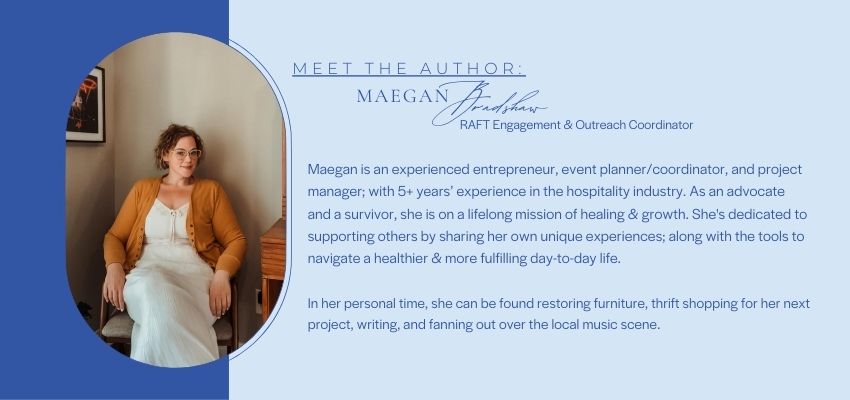The Invisible Load: Non-Promotable Tasks and the Burden on Women
Maegan Bradshaw, March 22, 2025
Picture this: You’re in a team meeting when your manager brings up a task that needs to be assigned. It’s not particularly difficult, but it’s tedious, time-consuming, and won’t do much to boost anyone’s career. There’s an awkward silence as everyone avoids eye contact, hoping someone else will step up. The pause stretches just long enough to feel uncomfortable—until finally, someone breaks the tension: “I can take care of it.”
This is what we call a “Non-Promotable task”
"Non-promotable" refers to tasks or responsibilities in the workplace that, while necessary for the organization to function, do not directly contribute to an individual's career advancement. This time-consuming work, sometimes called “office housekeeping,” includes tasks like taking meeting notes, onboarding new hires, managing administrative duties, planning social gatherings, and coordinating team activities.
Research shows that this “someone” to speak up and take on that ‘difficult’ non-promotable task is far more likely to be a woman.
Why do women take on more Non-Promotable Work? (Hint: It’s not because they want to)
Despite the ‘societal norm’s opinion’, women aren’t naturally drawn to non-promotable tasks, nor do they enjoy them more or have some innate talent for administrative work. The reality? These tasks often land on women’s plates because of outdated assumptions and unspoken expectations.
“There’s a misconception that women just gravitate toward these things or volunteer out of the goodness of their hearts,” says Liz Kofman-Burns, PhD, sociologist and cofounder of the DEIB firm Peoplism. “It’s probably more that others assume women will do the administrative work, ask them to do it, and women feel guilty or bad for saying no.”
In The No Club: Putting a Stop to Women’s Dead-End Work, researchers and coauthors break down the two key reasons why women shoulder the majority of non-promotable tasks (NPTs):
- Women are asked more often. Studies show that people are 44% more likely to ask a woman, rather than a man, to take on low-reward, high-effort tasks—ones that don’t lead to promotions or career advancement.
- Women feel pressured to say yes. The expectation that women will take on these tasks is deeply ingrained. Research shows that while men face no consequences for declining non-promotable work (and are even praised when they agree), women experience backlash if they say no—yet receive little to no reward when they say yes.
The impact? It adds up—fast. The No Club coauthors found that women in professional settings, regardless of seniority, spend about 200 more hours per year on non-promotable work than their male counterparts. That’s more than a full extra month each year spent on tasks that don’t move the needle on career growth.

Non-Promotable workloads are fueling the Gender Gap in Leadership.
When women spend hundreds of extra hours each year on non-promotable tasks the impact goes far beyond just a busy calendar—it actively stalls their career growth. Men have more opportunities for high-profile projects, leadership opportunities, and strategic responsibilities that pave the way for promotions – while often women are left juggling the “office housework” that keeps organizations running but doesn’t advance careers.
This imbalance compounds over time. The extra administrative and emotional labor women take on means they have less bandwidth for the work that gets them noticed and promoted—things like leading major initiatives, securing high-value partnerships, or taking on revenue-generating roles. The result? Fewer women climbing the ranks, fewer women in leadership, and a persistent gender gap at the top.
The Numbers Don’t Lie:
- Women hold just 10% of CEO roles in Fortune 500 companies.
- For every 100 men promoted to management, only 87 women are promoted. That gap is even wider for women of color.
For those of us working in the sexual and domestic violence (SV/DV) advocacy field, this imbalance is even more pronounced.
The Extra (Invisible) Work in Advocacy
Advocates—a field with a majority of women—are already in emotionally demanding roles. Our work requires us to be deeply empathetic, highly responsive, and constantly emotionally available to survivors, colleagues, and the community. But beyond the core responsibilities of advocacy, many of us take on an additional, often invisible workload that isn’t formally recognized or rewarded.
Advocates frequently find themselves managing team morale, checking in on colleagues, and de-escalating workplace conflicts, all while providing mentorship and absorbing the emotional weight of survivor stories. Meanwhile, behind the scenes, we take on office upkeep—restocking supplies, coordinating celebrations, and keeping shared spaces functional— sometimes all without formal acknowledgment.
Administrative burdens also pile up, with women more often expected to schedule meetings, organize events, create presentation materials, and handle follow-ups with external partners. And when extra advocacy duties arise—covering crisis calls, attending unpaid community events, or stepping in for absent colleagues—it’s women who are frequently asked to step up. While these tasks are critical to the success of any advocacy organization, they take time away from career-building opportunities like leading projects, developing specialized skills, or strategizing long-term initiatives.
The issue isn’t that these responsibilities exist—it’s that they often fall unequally on women without recognition or compensation. By acknowledging these hidden contributions and ensuring they are distributed more equitably, organizations can create a healthier, more sustainable workplace for all advocates.
The Connection to Emotional Labor at Home
This expectation doesn’t just show up at work. It closely mirrors the emotional labor women are expected to carry at home. Managing the household schedule, remembering birthdays, handling the mental load of childcare, maintaining social relationships, and ensuring everyone’s emotional needs are met—these tasks are rarely acknowledged as “work,” but they are exhausting.
For advocates, this creates a double burden: after carrying the emotional weight of survivors and colleagues all day, they return home to another set of invisible responsibilities.
What can we do to fight the good fight and BREAK THE CYCLE?
In a field where care and service are at the heart of our work, pushing back against unfair expectations can feel impossible. But if we want to create lasting change, we have to start somewhere. Here’s how we can take action and make workplaces more equitable:
- Recognize and Evaluate
- The first step to change is awareness. Non-promotable tasks exist, and they disproportionately fall on women. Do a self-evaluation—are you taking on extra work that isn’t advancing your career? Are certain responsibilities falling on you by default? Take an honest look at your workload and start tracking tasks outside of your job description.
- Keep Record & Start the Conversation
- Keep a running list of all the extra work you do—mentorship, planning events, taking notes, handling emotional labor—and share it in performance evaluations. Advocate for discussions with leadership about fair workload distribution and ensure these tasks are seen as valuable contributions.
- Distribute Responsibilities Fairly
- Rotate administrative and support tasks so they don’t consistently land on the same people. Structured systems create fairness:
- Rotate note-taking and meeting facilitation.
- Share event planning duties.
- Ensure leadership takes responsibility for team morale—not just individual staff members.
- Rotate administrative and support tasks so they don’t consistently land on the same people. Structured systems create fairness:
- Set Boundaries Without Guilt
- Saying no isn’t selfish—it’s necessary. Women should feel empowered to decline extra tasks without fear of repercussions. Leadership should reinforce that everyone’s time is valuable, not just the time of those who step up first.
- Advocate for Recognition
- If certain tasks are crucial for the organization’s success, they should be recognized in performance evaluations, promotions, and raises. Emotional labor, mentorship, and keeping a team connected is real work—it deserves credit.
- Support One Another
- If you see a colleague being overburdened, speak up. Offer to redistribute the load, back them up in conversations about fairness, and ensure everyone gets a seat at the table—not just a to-do list.
- Institutional Change:
- Organizations please proactively address this issue by:
- Clearly defining core responsibilities and extra duties.
- Offering compensation or promotion credit for additional work.
- Ensuring leadership acknowledges emotional labor and actively prevents burnout.
- Organizations please proactively address this issue by:
Change starts with awareness, action, and collective advocacy. By pushing back against these patterns and supporting one another, we can break the cycle and build a workplace where everyone’s contributions are valued.
So, put thankless tasks in your rear view…
When non-promotable tasks fall disproportionately on women, it’s not just individuals who lose out—entire organizations suffer. When talented employees are bogged down with unseen, uncredited labor, they miss out on opportunities for advancement, and the workplace misses the chance to leverage their unique skills in ways that truly drive impact.
While long-term solutions require structural change, we can take action now. Standardized processes can help distribute non-promotable work more fairly, but until that happens, visibility is key. Keep track of the tasks you’re taking on, highlight how they contribute to success in performance reviews, and advocate for recognition where it’s due.
Advocacy work is already emotionally and mentally demanding—our energy should be focused on meaningful, mission-driven impact, not just the invisible labor that keeps everything running. The more we speak up, the more we shift workplace culture toward valuing the work we do instead of just expecting it.
Advocates: You are more than the behind-the-scenes tasks. Your leadership, expertise, and voice matter. Let’s make sure our contributions—both seen and unseen—are acknowledged, valued, and fairly shared.








